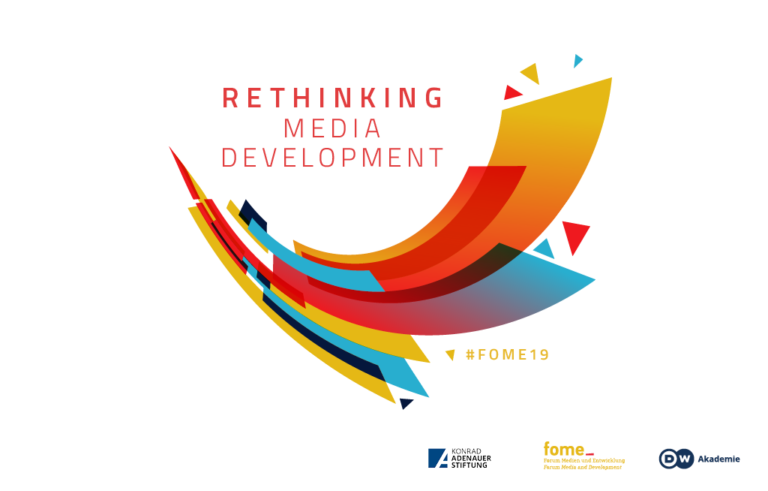The digital revolution has radically altered the ways in which we communicate with each other and gather information. Social media platforms have created a complex information ecosystem that is both a blessing and a curse for free and independent media outlets.
Digital technologies have created unprecedented opportunities for reporting and distributing journalistic content. For many, digital innovations hold enormous potential to remake the media landscape. At the same time, in this new age of misinformation and disinformation, traditional media outlets are increasingly under threat, as members of populist movements attack their credibility in digital spaces.
With the destruction of their traditional business models, free and independent media outlets are now struggling to survive. The digital revolution is far from over: Driven by technological innovation, it appears to be accelerating.
• How can media development succeed in this context?
• What are the most pressing challenges?
• What new approaches look promising?
• Where should media development be innovating?
• Where should it focus on continuity?
The 2019 FoME Symposium aims to rethink media development from three different perspectives:
New actors:
In the era of the network society, the media has lost its position as gatekeeper, making way for a huge number of new players. These new actors have begun to influence freedom of expression in the digital space, for good and for ill. In a network society, a variety of players perform the basic functions of journalism.
• From open-data initiatives to media start-ups: What innovative players are currently active? How should media development projects work with them?
• What are positive examples of cooperation with start-ups/innovation hubs? Do they improve the impact of media development projects?
• How do tech companies like Facebook, Google and the like come into play? Are they relevant cooperation partners for media development?
• What attitude should the media development community have towards the big tech companies?
New technologies:
In the 21st century, digital technologies have become one of the main drivers of social change – but new technologies have become a double-edged sword. On the one hand, we have come to believe in the enormous potential of digital innovations. On the other, the use of digital technologies, especially in the context of development work, can cause unintended consequences and engender great risks (including the increased vulnerability of technical infrastructure, issues with data protection, etc.).
• Within media development, where has the use of digital technologies made the greatest impact? Where has the application of digital tools made the work more efficient?
• How much of digital innovation is positive, how much of it is negative? When is innovation harmful?
• What are the potential risks and rewards of the latest media development technologies (such as artificial intelligence or blockchain)?
New strategies, new issues:
‘Same old, same old’ is not good enough anymore: Media development organizations need to adapt to new times, update their strategies and open themselves up to new issues.
• How have media development organizations prepared for these changes? What are the new strategic priorities?
• How does media development create opportunities for collaborative action and learning? Does the media development community need better cooperation? (Do we need a Mediadev Lab as proposed by BBC Media Action)?
• What are the issues of the future for media development?
• What is the value of new ways of funding media development (like Innovation-Funds)?


